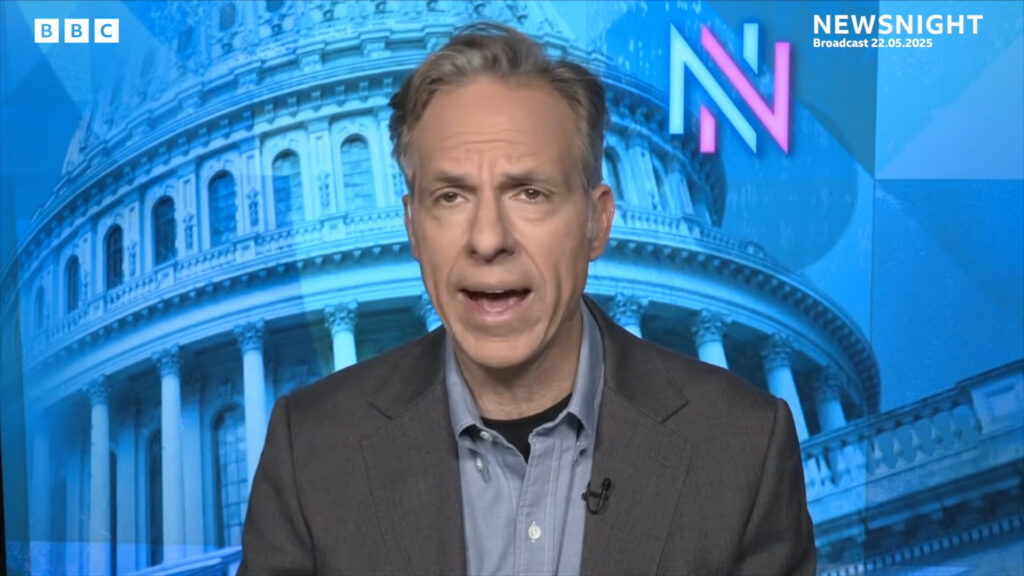Sort of a Book Review: Original Sin by Jake Tapper

Let me be upfront: I did not read Jake Tapper’s Original Sin cover to cover. I skimmed it—like a responsible college student skimming The Communist Manifesto for a Political Theory class he regrets taking. I read enough to understand the vibe, which is somewhere between a B-grade Tom Clancy plot and a fever dream Nancy Pelosi might have after one too many Napa Valley chardonnays.
Tapper’s latest work of “fiction” (I use that word generously—though ironically it’s more believable than his actual reporting) is set in the familiar world of D.C. political chaos, a world Tapper claims to know intimately. And why wouldn’t he? He’s been a permanent fixture at CNN, otherwise known as the emotional support channel for people who still wear double masks alone in their Prius.
The premise of Original Sin is simple: people in Washington are corrupt. I know, hold the presses. This literary revelation puts Jake Tapper just one psychic vision short of being Miss Cleo. What makes Tapper’s take so precious is that he writes about D.C. like he’s not part of the problem. You almost expect the book jacket to read: “By Jake Tapper—courageously exposing the corruption of a city that pays his salary and boosts his book tour.”
Now, Tapper likes to think of himself as the love child of Woodward and Bernstein, but with the storytelling skill of Dan Brown and the smugness of Rachel Maddow on a soy cleanse. He builds suspense like a guy who once read the Wikipedia article on narrative arcs. Characters are either virtuous crusaders for democracy (read: thinly veiled Democratic operatives) or nefarious right-wing monsters who, if the book went on long enough, would probably storm a school board meeting while waving copies of Atlas Shrugged.
Some of the dialogue reads like a rejected script from The West Wing, if The West Wing had been sponsored by MSNBC and Adderall. It’s full of conveniently timed exposés, steely-jawed journalists, and the kind of political conspiracies that make Joy Behar whisper “yes, queen” in her sleep.
But what really gets me is the marketing. Every interview Tapper does sounds like he’s promoting a Pulitzer-winning investigation, not a beach read you grab at an airport Hudson News because you forgot your phone charger. He sits there on The View or Morning Joe, puffed up like a liberal pufferfish, describing his work of fiction like it’s a roadmap to saving democracy. Meanwhile, his day job consists of squinting earnestly into the camera and pretending he’s shocked that another urban DA released a guy who lit a Walgreens on fire.
Tapper fans (all 63 of them) will argue that he’s a “real journalist” who just moonlights as a novelist. I say he’s a novelist who moonlights as a dramatized version of what coastal elites think journalism used to be—back when Cronkite wore a tie and people hadn’t yet figured out that legacy media was just D.C. karaoke with better lighting.
To his credit, Tapper can string sentences together. There’s punctuation, subject-verb agreement, and occasionally something resembling a plot twist. But if I wanted to read political fan fiction with an obvious agenda, I’d scroll through Twitter or pick up The New York Times.
Final thoughts? Original Sin is the literary equivalent of a gluten-free donut: technically well-constructed, blandly virtuous, and entirely unnecessary. It’s not the worst thing I’ve read this year, but that’s only because I’ve been reading my roommate’s philosophy essays.
Two stars. One for effort, one for consistency in pushing the same narrative—fictional or not.
And seriously, don’t buy Jake Tapper’s book. If you want to support an actual voice of reason, go buy Larry O’Connor’s book instead. He’s sharp, funny, and not trying to cosplay as a novelist while moonlighting as a DNC stenographer.
Buy Larry O’Connor’s latest book on Amazon — your brain will thank you.




